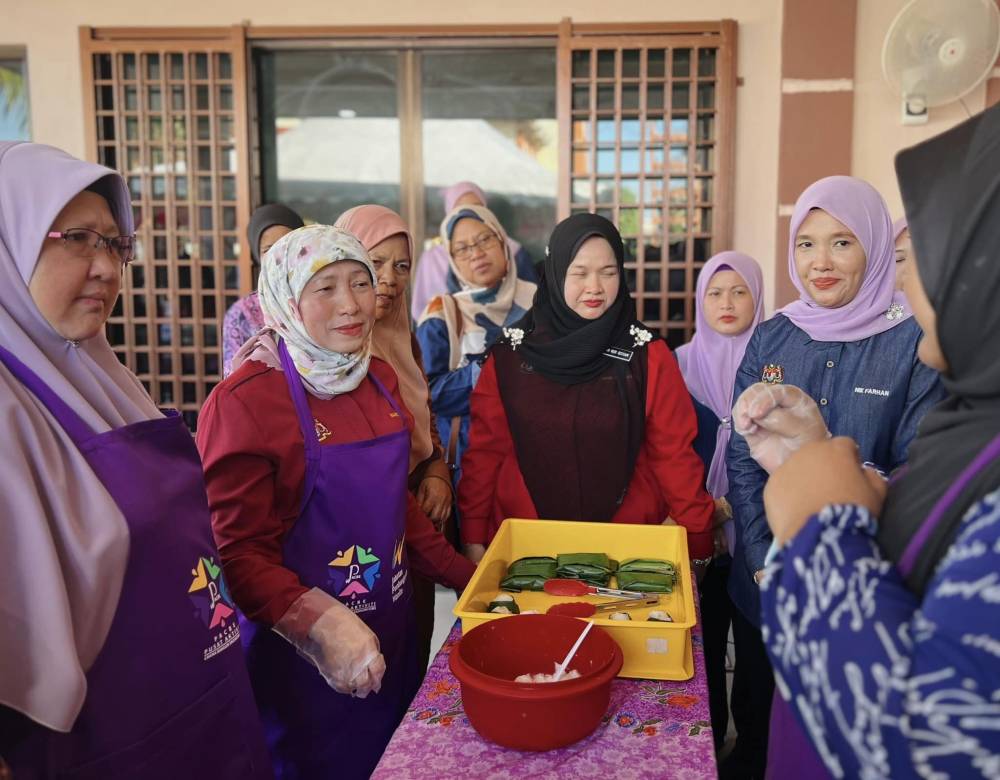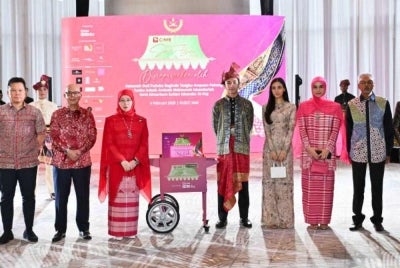More than just housewives: Ministry encourages women to embrace leadership, financial independence
"Some men may belittle their wives due to their dependency and it is something we strive to change."
SHARIFAH SHAHIRAH
SHAH ALAM – Women, Family and Community Development Minister Datuk Seri Nancy Shukri encourages women to create their own opportunities, achieve financial independence, and take on leadership roles.
She said it was important to nurture a culture where women feel empowered to express themselves, undergo leadership training and acknowledge their remarkable abilities across all domains.
Citing the gender disparity in the job market, she said that men comprised 81 per cent compared to women which stood at 56.2 per cent.
She stressed that women were not seeking competition with men but strived to close the gender gap.
"I always emphasise this point (closing the gender gap) because women typically prioritise their families, often choosing not to work. There is a need for training to empower them.
“How do we address this gap in terms of fostering leadership among women and within families and communities? My goal is to provide them with the necessary training and support to become confident leaders.
“I encourage them to voice their opinions and take on leadership roles,” she said.
Despite initial apprehension from the women, Nancy said she witnessed the women were willing to step up to speak even if they were nervous, which was commendable.
"I believe in acknowledging and applauding their courage when they overcome their fears to speak up.
“This is an essential aspect of leadership that requires nurturing and encouragement." She said when met recently.
Nancy also highlighted the significant number of women in rural areas who considered it their duty to care for their families but only deemed themselves as mere housewives.
Disputing this notion, Nancy emphasised the vital role of housewives, noting that their responsibilities started from the moment they woke up until they slept, without compensation.
She pointed out that many were either underpaid or unpaid, despite the essential nature of their work.
She said her organisation's goal of empowering women to earn their livelihoods and stressed her longstanding commitment to this and this was one of the reasons why she had been fought for it ever since she was in a non-governmental organisation (NGO).
While volunteering for the NGO, she faced financial constraints and had to seek assistance from agencies to identify target groups.
When determining whom to train, the focus was on women and she readily offered the organisation's female members for such programmes.
She stressed by taking on leadership roles, women could inspire admiration within their families, motivating younger relatives to aspire to similar achievements in the future.
"I aim to instil a spirit of empowerment among women, urging them to embrace roles beyond just being women, including those of mothers and wives.
"Some men may belittle their wives due to their dependency and it is something we strive to change," she added.
Nancy urged husbands to show respect towards their wives and at the same time encouraged women to be financially independent, asserting that this independence commands respect from both spouses and sets an example for their children.
Additionally, Nancy highlighted the importance of addressing economic and security issues alongside leadership development programmes for women.
She said their efforts in organising economic initiatives, aimed to stress the significance of women's participation in the workforce, which doesn't necessarily entail leaving their homes.
Under the ministry, various programmes such as Wanita Bangkit, Two-Year Exit Program, Mama Care, and NGO initiatives like Skuad Waja are implemented to support women's development.
Download Sinar Daily application.Click Here!














